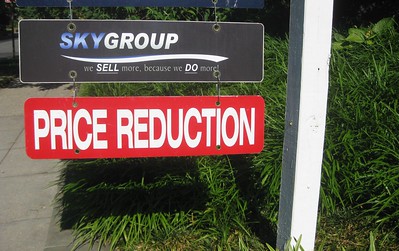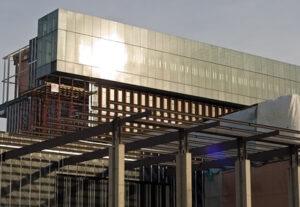A couple of days ago, I wrote about the possibility of a housing correction reducing property tax collections. I don’t have a crystal ball, so I have no idea whether we’re setting up for a sharp decline in housing prices or not.
The last housing market correction we experienced took place between 2006 and 2012. In that event, housing prices fell by about 30%. That triggered significant losses in tax collections that are still being felt today.
That’s a side effect of 1994’s Proposal A. Most people remember Proposal A as being the measure that separated school financing from local property taxes. To be sure, local property taxes still play a big role in funding Michigan’s public schools, but the measure attempted to bring about some equity in public school financing.
The other thing that Proposal A did, however, is limit the year-over-year growth in property tax increases. According to the law, property taxes can increase at a rate of the rate of inflation or 5%, whichever is smaller. We haven’t had annual inflation that’s exceeded 5% since Proposal A passed, so the increases in property taxes have been kept to the rate of inflation since 1994. In fact, the highest inflation rate we’ve experienced since Proposal A passed was 3.4%, both in 2000 and 2005.
Because Proposal A capped the rate at which property taxes could increase, the recovery in tax collections since the Great Recession has been slow. For example, the property taxes on my home peaked in 2008 – during the Great Recession. Because Proposal A limits the rate at which property taxes can increase and because I live in the same house I did in 2008, I pay nearly 14% less in property taxes today than I did in 2008.
Corrections last far longer than recessions do
That means my township collects less in tax revenues than it did in 2008. So does the County, the library, WCC, and the school district. Fourteen years later, my particular contribution to publicly funded institutions remains significantly discounted.
The property tax “resets” every time a property changes ownership and some parcels have a different tax structure. In addition, a lot of new homes have added to the area’s tax base, so the property tax proceeds in the area (collectively) have continued to grow. But property owners like me, who don’t move much, generate lower tax collections.
Another correction in housing values could lower my property taxes again. That would simply deprive the local governmental institutions of funding I (and many other voters) agreed to decades ago.
I don’t know what the turnover rate is for property in Washtenaw County, but I know that I still have many of the neighbors I had in 2008. At least in theory, they also pay less in property taxes today than they did in 2008.
My point here is that Proposal A had (and still has) a profound impact on property taxation. Limiting the rate at which property taxes can rise comes with long-term consequences. It is precisely these consequences that the WCC Trustees must consider before authorizing bonds backed by WCC’s General Fund.
Rapidly falling property values – should that ever happen again- will not generate immediate funding losses for WCC. At the same time, rapidly rising property values in Washtenaw County will not generate any property tax windfalls. There’s no guarantee that the annual incremental increases in property tax collections will fully cover the cost of any new bond issues. As a result, student tuition will increase, causing enrollment to decrease.
Let the voters decide
The very best course of action on funding capital projects is to let the voters decide whether the project has any merit. If it does, the voters will fund it much as they always have. That shouldn’t bother the Trustees, but for some reason, certain Trustees cannot bear to have their WCC taxes rise. Trustee Dianna McKnight-Morton ridiculously argued once that her WCC taxes were likely the largest line item on her (Ann Arbor) tax bill. (Not even close.)
The voters authorized the creation of WCC knowing that the institution would cost more in taxes over time. And the voters have been very generous with WCC. Let the voters fund the College and graciously accept their decisions, regardless of what those decisions might be.
Photo Credit: FutureAtlas.com, via Flickr


























